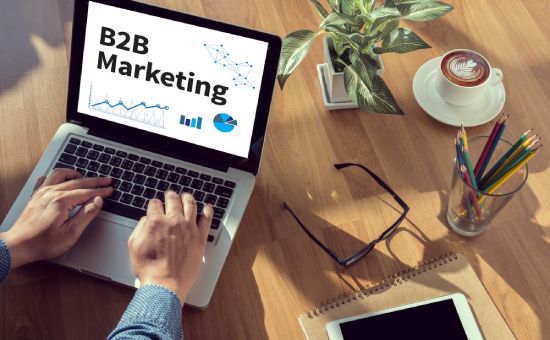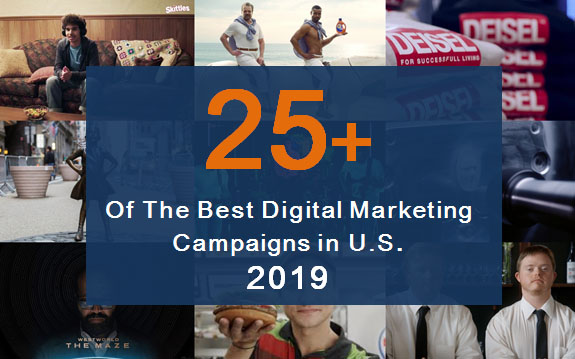B2B Marketing Guide for 2020: Which Industries to Target
B2B Digital Marketing | May 12, 2020
Technological advancements have transformed the digital landscape in 2020. Launching a business in the digital age involves complete knowledge about the changing trends in the industry. The B2B sector is quite different from its counterpart, the B2C industry.
When talking about launching a new venture or expanding a business, we focus on the potential audience we’re aiming to grab the attention of. The B2B industry isn’t as customer-centric as B2C, where revenue and profit generation depends on individuals.
B2B organizations struggle with targeting a specific market as their audience is scattered all over the place. Identifying the right audience is simple once you’ve figured out the target industry of your B2B business.
An elusive target audience limits the amount of B2B advertising you can carry out. And without the right marketing and advertising, expecting a spike in sales is an unrealistic expectation.
Before targeting a specific audience, identifying the right industry to expand your business is crucial. All successful B2B companies have one thing in common; they know the type of companies that would be interested in their products and services.
Regardless of the industry, B2B organizations survive and operate on services and products from other businesses. A lot of factors go into consideration to understand and target the appropriate industries. Budget, risks, objectives, and resources serve as critical factors in deciding the target industry. You can find detailed information about targeting the right audience on Top Firms.

Luckily, in this B2B marketing guide, we talk about the different industries to target in 2020, primarily for B2B tech companies.
B2B Marketing Guide for Various Industries—2020
1. Retail
B2B tech companies grow incredibly in the e-commerce industry. It’s no surprise that the retail sector has undergone a dramatic change since 2017. Huge retailers have gone bankrupt ever since consumer transactions shifted to a more digitalized space. This is where e-commerce comes to help. Developing a B2B e-commerce presence in this fierce competition is essential to flourish as a business. B2B tech companies are specifically pushed to enter the e-commerce industry to boost sales and grow faster.
Not only will e-commerce sales experience a dramatic increase, but targeting professional clients online opens new doors of opportunities for growth. Entering the e-commerce industry in the digital age is the smartest business move B2B companies can make.
Related Article: 6 Reasons Why eCommerce Is So Important for Your Business
2. Human Resource
Several B2B companies are aiming to sell HR services to other companies. When it comes to targeting the HR industry, you need to be sure of what your unique selling proposition is since identifying the right industry needs to align with that. The HR sector is the last piece that completes the puzzle.
Targeting this industry requires you to set long term goals and thoroughly think about how industry-specific and interested your company is to achieve those long-term goals. Many industries directly rely significantly on a productive HR workforce to operate smoothly as this industry makes the most purchasing decisions than any other existing industry.
3. FinTech (Financial Technology)
You will find a very reserved B2B market in the FinTech industry. Thanks to technological advancements, Fintech investments have been boosting creativity and innovation in the B2B market. Not only is the B2B market quite active in this industry, but you will also notice a significant increase in investments from private companies. Because of the impactful progress in eliminating financial friction in online transactions, the popularity and interest in FinTech have been snowballing.
Not only will the Fintech B2B space show spectacular improvement in infrastructure, but it will stabilize operations, boost efficiency, leverage data creatively, and reduce external costs.

Image by Gerd Altmann from Pixabay
4. Digital Marketing
It’s no surprise digital marketing trends have been taking over the B2B space for a while now. To create a strong digital presence and boost lead conversion, digital marketing involves several strategies, tools, and assets needed. Planning, automation, campaigning, and social media are a part of digital marketing, and the survival of B2B organizations in this technological landscape highly depends on brand visibility.
Most B2B companies highlight the importance of digital content and marketing regardless of what channel they sell to. The whole point is to establish a digital presence. From launching the website to creating a marketing funnel, this industry is filled with opportunities for growth and success.
Related Research: The State of B2B Lead Generation Report, 2019
5. Biotech
Unexpectedly, the biotech industry is expected to thrive the most in 2020. This industry can completely revamp the B2B space. Technological advancements in this sector are making preventive medical measures globally possible. Not only is it an active and changing sector, but it’s also doing an excellent job in creating future opportunities for businesses.
From detection to health management, scientists and doctors are transforming the healthcare sector one development at a time. While people are becoming more conscious about their fitness and health, many B2B companies are taking this opportunity to step out and provide health services. Incorporating B2B in a consumer-focused model certainly creates new opportunities for expansion, especially in the health sector.
6. Information Security
The B2B space in the information security industry is globally popular as international clients and businesses are always looking for top-notch security protocols and systems. Data protection is a priority for every company, and entering the information security industry will not only help you gain loyal customers but also maintain brand equity as well.
For B2B marketers all around the world, cybersecurity is a top priority. It’s no shock that the B2B market is exposed to huge volumes of data regularly. Most B2B companies are required to comply with the GDPR implementation in Europe and meet all security standards while dealing with international businesses.
Providing network security, application security, information security, end-user compliance, and disaster recovery is the only secure way of leveraging security for data protection seriously. Installing firewalls and backing up data isn’t enough to protect data anymore.
Final Word
Technology is ever-evolving, and new trends and changes in these industries are expected. There are hundreds of industries where B2B can be incorporated. However, the ones listed above provide a one-way ticket to success. It’s important to realize how trends vary industry by industry, and it’s the only way you can categorize your needs are to target the right industry.





